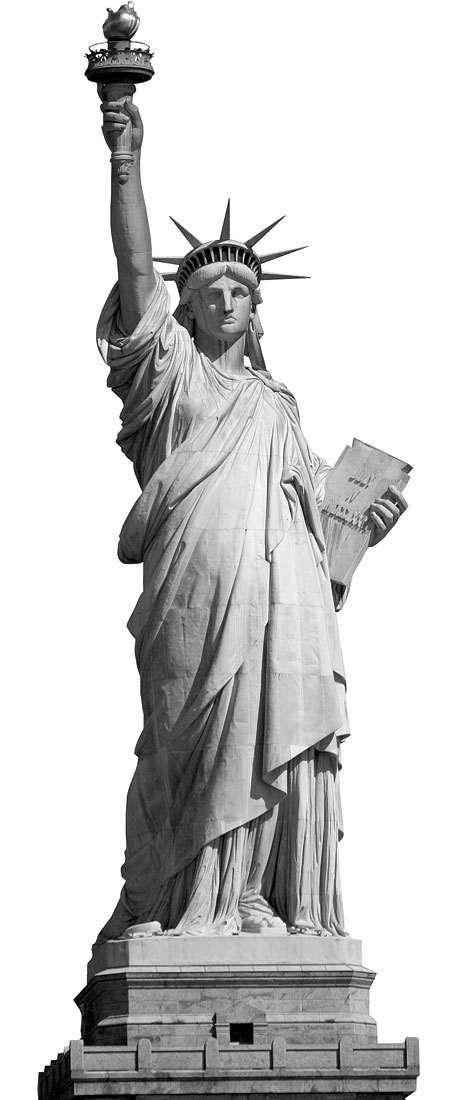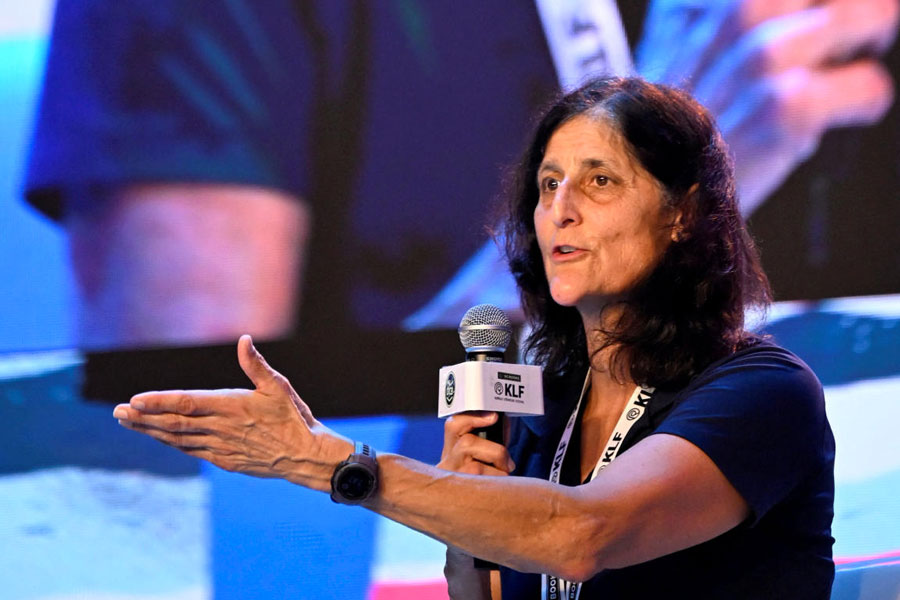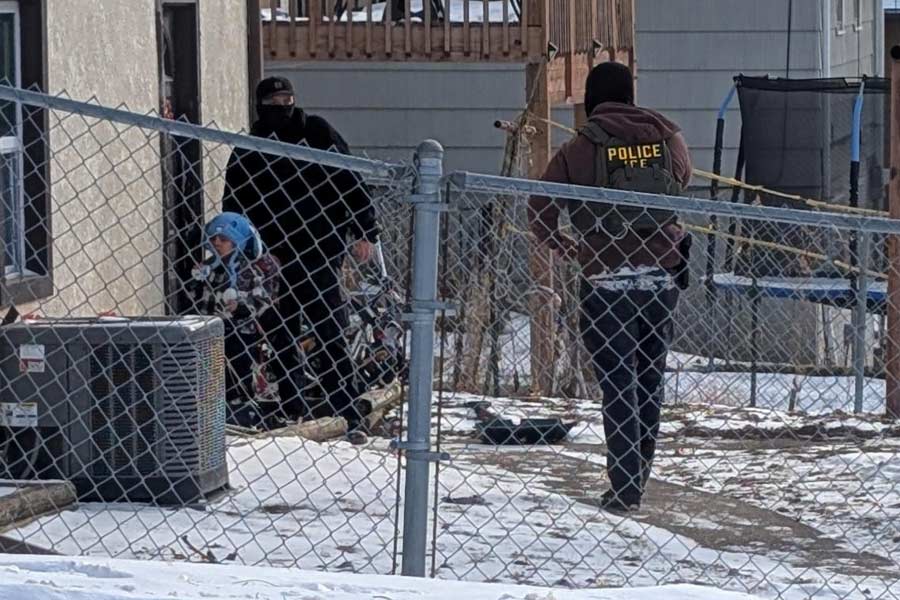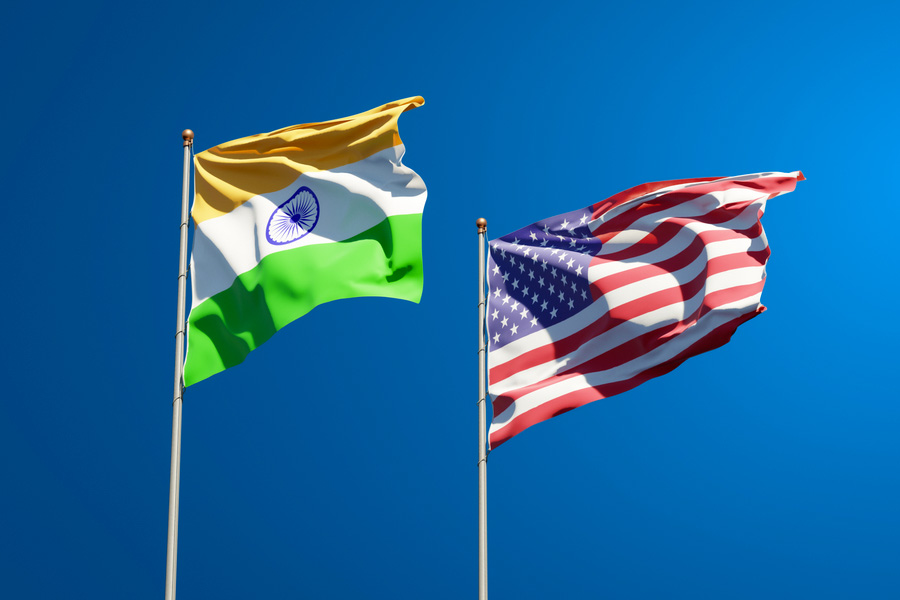
December 2015, I was visiting the US for the first time. It was a dream vacation where I was going to pose like Shah Rukh Khan from Kal Ho Naa Ho on Brooklyn Bridge, eat at the cafe from Sex and the City and go home feeling like a star. While holidaying, I also slowly discovered the reason for the success of the First World — there were rules and people actually followed them.
Here, people valued rules and more importantly they valued other people, irrespective of social status, size or skin colour. The row of people behind me on an aircraft must wait for me to leave first, even if I do it at a sloth’s pace. All this while, I had been averse to the idea of moving to the US — it’s just too far, life would be horrible. But this shining example of good citizenship was the first step in convincing me otherwise.
And then it happened. I was introduced to an intelligent, smart, and sensitive man. We fell head over heels in love, making transcontinental trips every few months to overcome the 13-hour time difference between us. Now America wasn’t too far. It was the place that took me close to the one I loved. There I was in January 2018 — freshly married and blissed out while on my way to making a life in the United States of America — the land of the free. Little did I know that I was about to lose the one thing most precious to me — my freedom.
HELP UNWANTED
My status in America is H-4 or Dependent. Dependent visa holders like me are only allowed to ‘live’ in the US. The definition of live is that while I can be physically present in this country, I have zero rights. I am not allowed to work, not even for free, because I’ll be snatching an American’s job. So I don’t get a social security number. Without a social security number, I cannot get a local ID, a bank account, credit card or even a postpaid phone connection. I had a flourishing career in public relations for eight years before I moved to the US.
I say flourishing not because I’m complacent but because I really enjoyed what I did and was good at it too. I had experience across major brands in India and China. But, not having a work visa here meant I’m untouchable. “You have solid credentials, but we don’t sponsor visas” — I have heard/read this statement a stellar total of 54 times. Till date, I’ve seen 124 ‘Help Wanted’ signs at restaurants and cafes and as much as I want to help all these people, I cannot. Not without breaking the law at least.
Our society is built on a fundamental question — “What do you do?” This is a driving force that gives us purpose on a daily basis. It is what forms our personalities and it’s also the most basic small talk question at social gatherings. I had only one answer: “Nothing.” I had a purposeless existence. Wake up in the morning and do what? Watch TV, read a book, clean the house and cook. That’s a lot to do, but it means nothing when it’s precisely what you don’t want to do. Turns out, I wasn’t alone in this agonising state. On doing some research, I found a Facebook group, aptly named ‘H-4 Visa Is A Curse’. There were thousands of women like me and a whole world of new questions.
IN A LIMBO
Despite my previous claims at being an expert in American visa laws, it looks like I didn’t know anything, much like Jon Snow. In 2015, the Obama administration realised that H-4 visa holders — primarily Indian women are a pool of skilled talent who can bring in more dollars and address labour shortage issues. They announced that while H-4 visa holders wait for their green cards, they can work. This was a huge relief as the queue for green cards is anywhere between 15 and 40 years. However, the ordeal wasn’t over.
The Trump administration is working to strip H-4 visa holders of their rights — again. There could be appeals and petitions. But in a world of separated families and refugee rights — the brown Indian housewife is very low on the priority list for relief efforts.
I met Shikha (name changed) on the H-4 Facebook group. I had described my experience — identity crisis, loss of self-esteem and the overall feeling of frustration. Oddly, it felt great to share my problems with a bunch of strangers. I even shared that my husband and I were contemplating moving back home. Here’s what she said:
“You are lucky. I had tried to convince my husband to move back home a few years back. Turns out home loans, pollution, longer work hours, unprofessionalism, safety, currency, traffic and eating beef are all pretty legit reasons for not moving back. I guess my dignity is a small price to pay in exchange. I’m still going to be useless, but apparently, being useless in America is better. I wouldn’t say living here is frustrating. It’s not frustrating — it’s excruciating. There is actual physical pain that I cannot describe. Sometimes, when I go to bed, I wish that I don’t wake up the next day....”
Someone I know once said, “Didn’t you know your husband’s visa status before you married him? How could you let this happen?” If only relationships were built on visa status. But they’re not. They’re built on love and understanding. Sometimes, people like Shikha and I decide to deprioritise our aspirations. Most of the time we can deal with it, but often the world becomes a dark place.
GOOGLE’S GOOGLY
I was proposed three solutions to try and make a living in this country. First, go back to school and get a degree in STEM — science, technology, engineering, and math. These are preferred fields for foreign talent in America. For me, it was impossible. I had scored a magnificent 4 on 100 in math and 92 on 100 in English. Second option, have a baby. Criminal. I had a plant once, and it died faster than you can say the word ‘plant’. Third, get a hobby or join a meetup group. This one sounds reasonable? Not in my case.
I live in a small city called Elgin. It’s about an hour from downtown Chicago and has a population lesser than the number of residents of my building back home in Calcutta. I exaggerate. But it is like living in a village with superfast Wi-Fi, electricity, water, just no public transport whatsoever. When we were signing the lease for this apartment, a lovely lady at the leasing office welcomed me. “You will love living here. We have so much greenery, activities, and there is a fantastic coffee shop just five miles from here!” she said. Sorry, what? Five miles? Five miles is eight kilometres — the distance between Tollygunge and Bhowanipore in Calcutta. A trip my mother takes only once a week to meet my grandfather because it’s a bit far. I’m supposed to travel that much every day to get coffee? Considering my husband takes the car to work, I am limited to the confines of our apartment for five days a week. That is when I appreciate and miss the good old rickshaw and Calcutta Metro.
One day I tried going to a park. Went on Google Maps, typed ‘Parks Near Me’ and found a park named Mount Hope. I could use some hope on a day when my confidence was down in the dumps. It was an 11-minute drive or an hour-long walk. I decided to splurge and called me a $23 Uber — that’s how expensive hailing a ride is in the suburbs. Twenty minutes later, in front of me and in all its glory stood Mount Hope Cemetery. Unending rows of tombstones as far as my eyes could see, but no park. It was a practical joke of epic proportions. I could blame Google or God, turns out in today’s age the lines between the two are blurring. But, standing in the middle of nowhere, outside a cemetery, I laughed. Loudly and for the first time since moving to the US.
It wasn’t the kind of hope I was looking for, but it was a divine intervention of some sort. I still have no idea, whether or not I’ll live in this country. I don’t know if I’ll ever regain my confidence. However, it is an experience. A lesson that has taught me that life will throw you a cemetery when you’re looking for a park. But, you just can’t give up.
The writer is a communications consultant. Find her adventures on Instagram: @this.that.what










